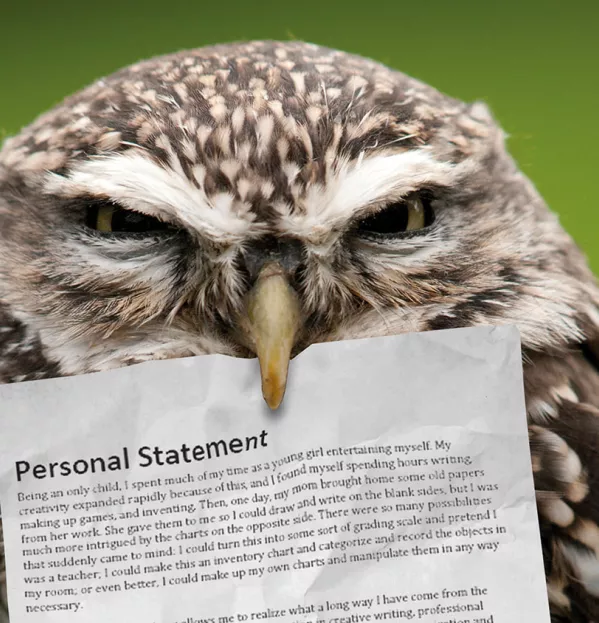We are in personal statement season again - that circuitous period in the year when many of our Year 13 students devote the best part of autumn and early winter to writing and then repeatedly rewriting their 47-line pitch for a place at university.
Why is it seemingly becoming an ever more tortuous and time-consuming process, not just for the students but for everyone else sucked into it - teachers, form tutors, parents? I blame many of those over-venerated university admissions tutors and their countless, well-publicised “Do and Don’t” decrees. While much of that online advice is plainly useful, a lot of it comes across as merely the whining and grumping of tired and cynical people who have perhaps been doing the job for too long.
They are far too ready to condemn what they consider to be “hackneyed”, “clichéd” or “insincere”, forgetting that personal statements are generally written by 17-year-olds for whom the activity is new each year. If an admissions tutor happens to have grown weary of certain adjectives, sentences and sentiments recurring each year then it is surely their problem, not the fault of the student.
They apparently have particular beefs, for example about the word “passion”, which they say is “over-used”. Well, not any more, given that most schools have faithfully kowtowed to those hallowed admissions tutors and banned their students from ever going near the word again. “But I am passionate about history,” said one of my tutees last year when I dutifully advised her to strike it out. She looked distinctly disillusioned when I explained why.
Similarly, words like “adore”, “fascinate” and “relish” are all apparently too over-blown. Why? Maybe the admissions tutors who say this do not feel deep emotion any more, but surely an expression of youthful, unqualified enthusiasm is one of a young person’s most endearing qualities? I wonder, how do some of these tutors respond to their partner saying, “I love you”? “Oh, not that one again! Try something a little more believable and measured.”
True statements
Consider the tired cynicism of the admissions tutor who has written, “If I read about Freakonomics once more, I’ll scream.” Has she or he considered that this book (and similar) is likely to be fresh and inspiring for 17-year-olds? Why should a student avoid mentioning it simply because a cantankerous academic is bored with such a reference?
We are advised that admissions tutors treat with derision any student who begins with a starter such as, “I’ve been interested in geology ever since I wandered along a beach with my parents at the age of 3 and found a fossil,” or who writes that their interest in medicine began from “watching episodes of Casualty”.
What if these statements are actually true, as they often will be? And the list of strictures inevitably grows each year, as more features of the personal statement naturally become - in the tutors’ eyes - too commonplace. In recent years, for instance, tutors have advised against “attempts at humour” or (as they miserably put it) “quirky openings”. Eventually there will be nowhere at all for the applicant to go.
Too many clichés? Too tired and hackneyed? At the very least, this certainly seems to be the case with far too many admissions tutors.
Stephen Petty is head of humanities at Lord Williams’s School in Thame, Oxfordshire

